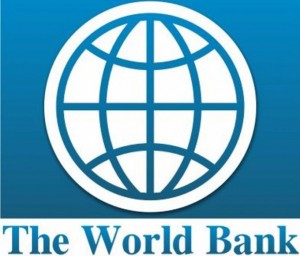World Bank approves $100m to finance Ghana social safety net programme
 The World Bank has continued to finance programmes aimed at social interventions and poverty reduction in Ghana. Even though Ghana was doing well at some point in reducing poverty, poverty reduction in the country has slowed. The outbreak of the COVID-19 pandemic has exacerbated economic conditions across the world including Ghana, deepening further the plight of the poor and vulnerable. The Bank is therefore, supporting the country’s social intervention programmes for the poor. On March 30, 2021, the Bretton Woods Institution approved a $100 million financing for the Ghana Productive Safety Net Project 2 (GPSNP 2).
The World Bank has continued to finance programmes aimed at social interventions and poverty reduction in Ghana. Even though Ghana was doing well at some point in reducing poverty, poverty reduction in the country has slowed. The outbreak of the COVID-19 pandemic has exacerbated economic conditions across the world including Ghana, deepening further the plight of the poor and vulnerable. The Bank is therefore, supporting the country’s social intervention programmes for the poor. On March 30, 2021, the Bretton Woods Institution approved a $100 million financing for the Ghana Productive Safety Net Project 2 (GPSNP 2).
In a news release copied to ghanabusinessnews.com, the Bank says the project will support Ghana to expand and strengthen its social safety net programme to directly benefit over 1.6 million people. The project will help to improve the incomes and productivity of the poor and vulnerable, it added.
The Bank indicates that in recent years, the pace of poverty reduction has slowed in Ghana, and the association between economic growth and poverty reduction has weakened. The coronavirus pandemic and accompanying global economic crisis has also served as a major setback to Ghana’s prospects for further reductions in poverty.
The project, the Bank says, will benefit the poorest households in all regions of Ghana by: providing cash transfers to 350,000 households through the Livelihood Empowerment Against Poverty (LEAP) reaching 1.5 million individuals; reaching 60,000 beneficiaries through the Labor-Intensive Public Works (LIPW) programme; and supporting 35,000 beneficiaries through productive inclusion activities to enhance the income-generating potential of the poor and vulnerable.
GPSNP 2 will extend coverage into urban communities to help tackle pockets of high poverty and vulnerability that exist in these communities. It will also scale up the provision of information, communication, and engagement services to safety net program beneficiaries in relation to education, health, financial well-being, gender, and social inclusion, the Bank said.
By Emmanuel K. Dogbevi
